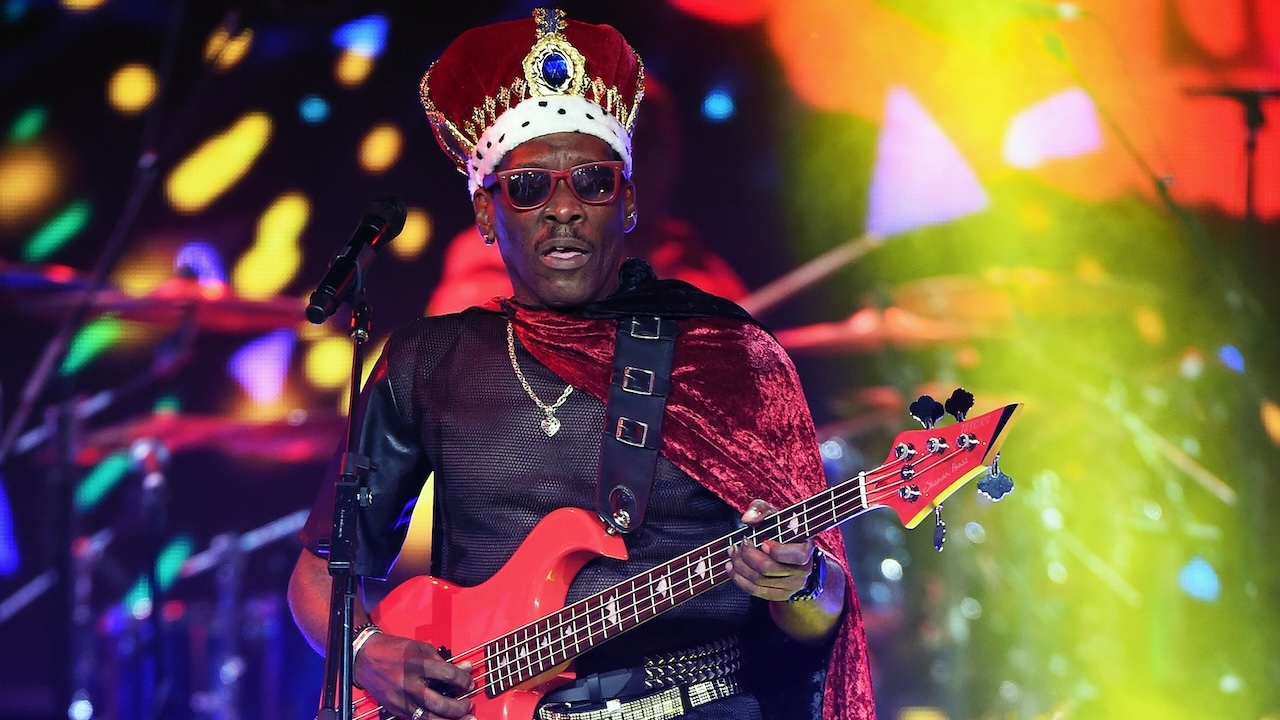“Aaron Mills is one bad mutha to have in the studio,” says André Benjamin, aka André 3000, the mastermind behind hip-hop iconoclasts OutKast. He ought to know – Mills' are all over OutKast's Grammy-winning rap album, . A Chicago-based electric and upright bassist who has been performing, recording, thumping, and slapping with Cameo on and off since 1979, Mills provided the backbone for two biggest hits, and .
And in an unusual move for the programmed, looped world of hip-hop, he laid down his pulsating lines all the way through each track. “Some younger musicians always expect me to loop it,” Mills told . “When I say that playing it live is a piece of cake, they're almost shocked.

I'll say, ‘Let me play it for you, and I can expand on it if you want me to. But if you want the same thing all the way through, I can give it to you like that.’” An experienced professional, Aaron Mills' personal history and musical concepts are remarkable – all of which became clear when we spoke with him.
“My parents were both musicians. My daddy, Elvin Mills, played saxophone with Lionel Hampton, and my mother, Ruth Mills, played in the church. I started playing when I was about 11 years old in Ashville, North Carolina.
I actually played guitar first, but my family band needed a bass player. “I started playing professionally when I was about 19. I was just a kid, but I could read music, so when guys like Sam & Dave or Percy Sledge would come through town, I got to back them up.
“I went to college at North Carolina Central, where I met Donald Byrd & the Blackbyrds. Donald produced my group the New Central Connection Unlimited for United Artists in 1974, and we toured with the Blackbyrds.” “After the New Central Connection Unlimited broke up.
One Sunday, I had just gotten home from church, and the phone was ringing. I ran to get it, and it was Larry Blackmon. By Tuesday, I was in New York at a Cameo rehearsal.
” “I intended to make some money and bail out. After I'd been with them for a couple of months, we went into the studio and did . When the damn thing went gold, I decided to hang around! We had four or five gold records in a row, and then a platinum album with .
” “Rap was taking over, and all the A&R people at record companies were signing young talent. Bands were falling off, and it was especially tough on a lot of Black acts like us, Con Funk Shun, the Gap Band, and the Ohio Players. It hurt to lose our record deal, but we had a lot of fans, and we still toured a lot.
” “My good friend Sean ‘Shyboy’ Davis – the engineer for Atlanta's Dungeon Family, the group OutKast is part of – woke me up at 3:30 one morning to work on , and by 4, we were in the studio. “They put up and we played it down twice. I came back a couple days later, and we did , and I also played that right down the track – no loops.
Now I work with Dre all the time – I'm his bassist. He may use somebody else, but if I'm available, bam, he wants me.” “It's a challenge to play repetitively – to do the same thing consistently over and over again.
I can play this simple, same in time, without missing a beat, for five minutes. I could make the energy level keep growing – that doesn't mean the time is going to speed up. There's nothing like a human feel.
” “It's all in the wrist. You've got to have a downstroke and an upstroke with your thumb; I used to walk around slapping my thumb against my chest or my leg so I could get that rhythm in my wrist. Sit around with a metronome and practice slowly, and then speed up.
It takes time but who wants to hear someone who can play fast but not slow?” “When I first joined, I had a souped-up 1957 Fender Precision – it was a hot bass. I also have an old Spector that still sounds great. I would play through an Ampeg SVT; basically, back in the old days, everybody used SVTs.
Today, I put it in the contract rider that I'd like a Hughes & Kettner or an SWR. But every now and then I run into an SVT – that old dinosaur – and it always works.” “If you hire me for a session, I will be prepared.
I read music, but if you don't have the music, you could send me a tape – my ears are great. And even if you don't send me a tape, my ears are still great in the studio. “I like to play all the way through the track; I will loop, but I prefer not to.
When I cut, I'll be finished within the hour. Either way, I'm going to take your money!”.



















